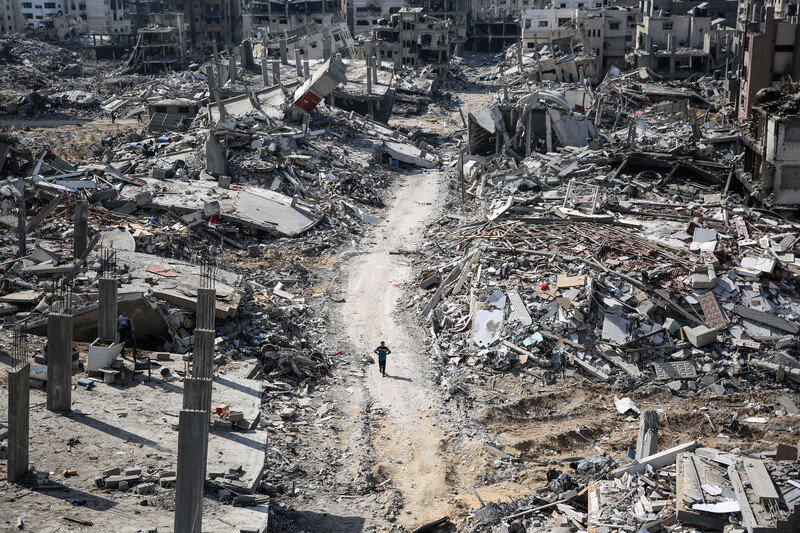The Electronic Intifada 3 April 2024

The area around al-Shifa, Gaza’s largest hospital, following an Israeli massacre.
DPA via ZUMA PressRamadan in Gaza is unlike any we have previously seen.
We don’t have the traditional suhoor to brace us for the day ahead.
There are no feasts here.
No invitations extended for people to come and visit.
We can barely feed ourselves, let alone guests – even if they are members of our own extended families.
It is impossible to have sweets and juice after the iftar.
Sugar is a luxury beyond our reach.
All we have to drink is polluted water.
Chicken and red meat were once staples. They have been replaced by canned and processed food.
Fruit is practically non-existent.
My son is a carrier of thalassemia. So he needs to eat food rich in iron.
The food he needs is not available and he has begun to show the signs of anemia.
This Ramadan is the first one during which my son is fasting. When the sun sets, he eats a humble tin of beans.
He has grown thin. I can’t bring myself to tell him that I am insisting he fasts because we have hardly any food.
Missing our loved ones
In the evening, we gather for tarawih prayers amid the rubble of mosques that have been destroyed or badly damaged.
There are so many people missing at our tables. Everyone has lost someone they loved in this war.
With massive displacement, people have to share meals in tents. Our surroundings provide a constant reminder of the devastation Israel has inflicted on us.
For almost six months, we have been deprived of electricity. We have to eat our iftar meals in the dim glow of the lights on our cellphones.
There is no special series we can watch on TV this Ramadan. There is nothing to distract us from reality.
Our internet connections falter, leaving us cut off from the outside world.
We go to bed early, seeking refuge from all the noises that haunt us in the hours of darkness. The drones can always be heard overhead.
In our exhaustion, we yearn for sleep to claim us, to offer respite from the pain gripping our hearts.
In past years, we would give to the needy at Ramadan, ensuring they could break their fasts with hearty and nutritious meals. Now, we are among those reliant on donations and aid packages.
The transformation has been profound.
All of this has been dictated by how we were born in a troubled land. Something that is out of our control.
Israel is continuing to commit atrocities during this holy month.
Gaza’s largest hospital – al-Shifa – has been the scene of a massacre that is among the worst in Palestine’s history.
Homes are still being bombed.
People are still being trapped under the rubble.
These horrors are happening during a time meant for reflection and spiritual growth.
We wish the world would see us not as statistics and headlines but as human beings deserving of justice.
The genocide must be stopped.
Sahar Qeshta is a writer in Gaza.





